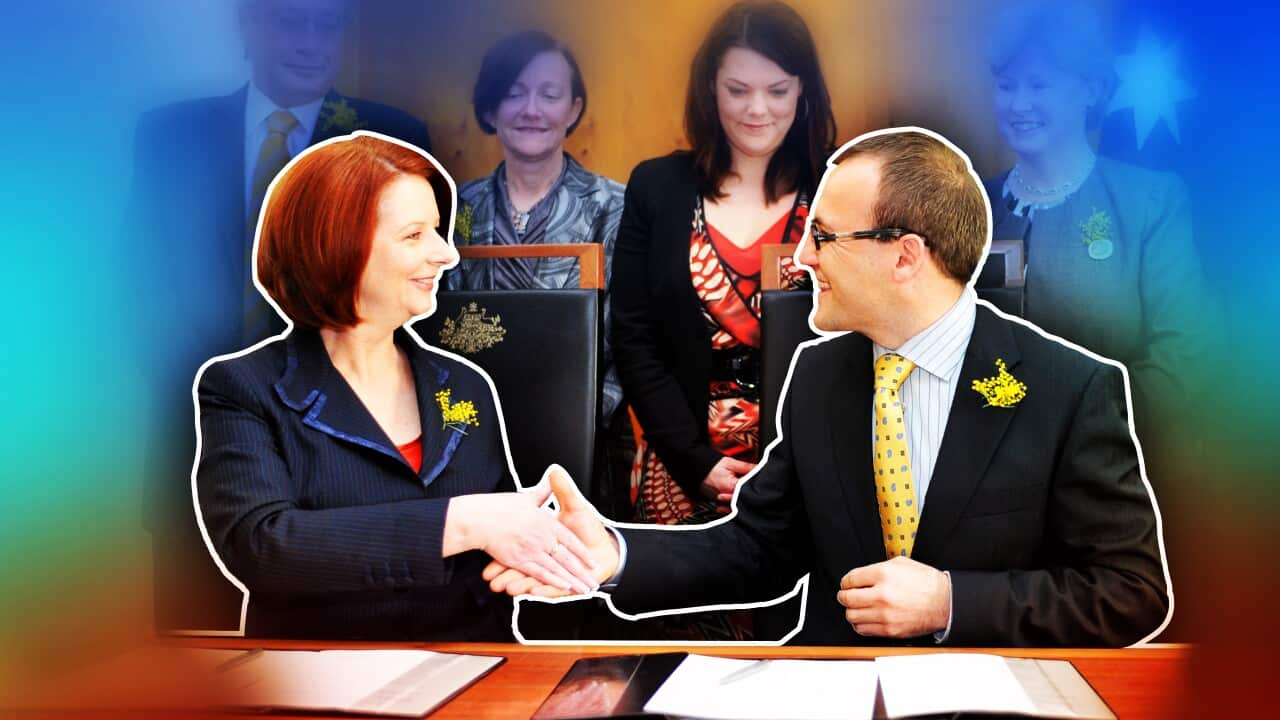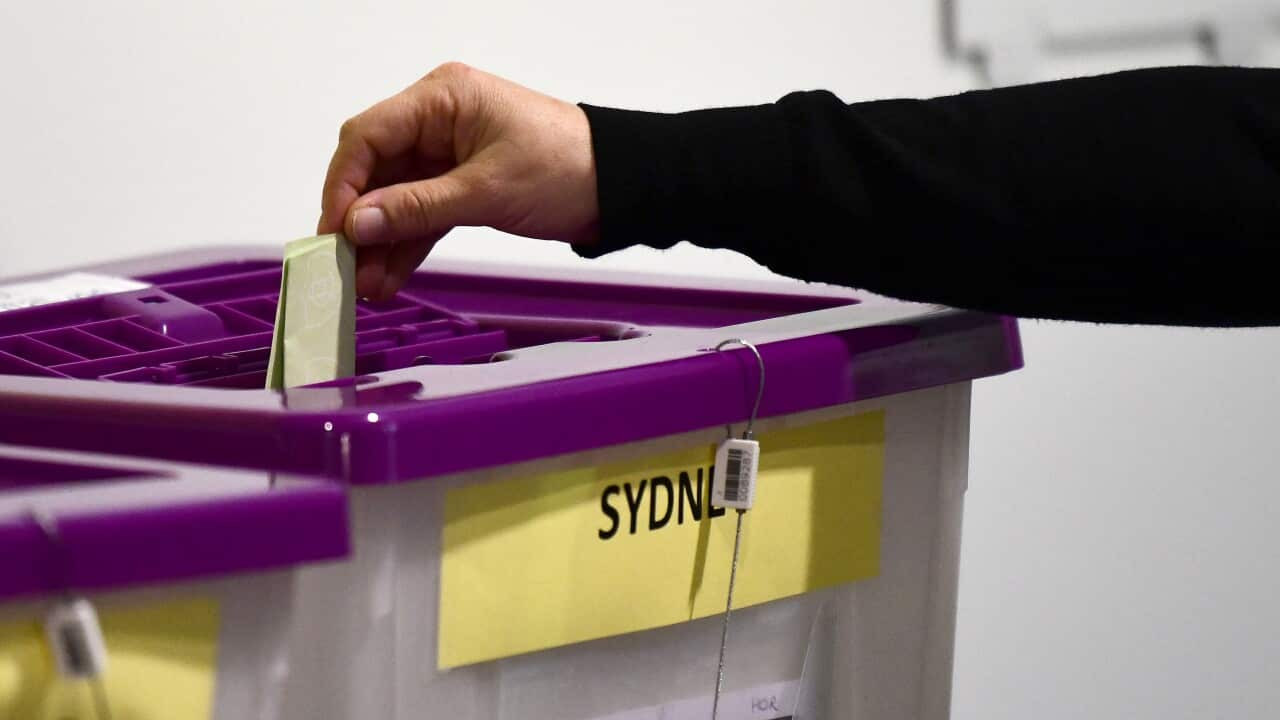A minority government or ‘hung parliament’ occurs when neither of the two major parties — the ALP or the Coalition — secures enough seats in the lower house or House of Representatives to take power in its own right.
To form a government in its own right, either of the major parties would need to win at least 76 of the available 151 seats in the House of Representatives.
If there is no clear winner, negotiations with minor parties such as the Greens, as well as independent members, must begin to decide "how a government can be formed", according to Graeme Orr, an electoral law expert from The University of Queensland.
These minor players are sometimes referred to as the 'crossbench' in federal parliament.
Minority governments are rare, occurring in 1940 and 2010.
Following the 2010 federal election, the major parties were effectively deadlocked at 72 seats each.
The Labor Party led by Prime Minister Julia Gillard, was later able to form a government with the support of a Greens member Adam Bandt and three independents.
Before the 3 May 2025 election, Labor had a majority government with 77 members in the House of Representatives compared with the Coalition’s 53, the Greens (four), Centre Alliance (one), Katter’s Australia Party (one), independents (13) and two vacancies.
Negotiations in the event of a minority government
The support the independents and minor parties need to offer a major party for it to be able to form government is called 'Supply and Confidence'.
This isn’t a guarantee that the minor partners won’t disagree with or block legislation, but rather that they guarantee to support the government if a "no confidence" motion is introduced into parliament and will vote for appropriation bills that allow the government to spend money, also known as "supply".
"The one thing that can bring down a government that otherwise has numbers is if it can't get the budget through parliament," Orr said.
Minor partners may also request ministerial positions or to have certain legislation advanced through parliament but again, there is no guarantee either of these requests will be granted.
Given polls were showing that the primary vote of the major parties had slipped to below 30 per cent, there was a higher chance politicians who were not members of the major parties would be elected, Orr said.
"I think we have to be more adult about it and accept the fact that not only [will there be] more minority governments in Australia ... we [also] need parties to adjust to this idea of negotiating," he said.
Under a majority government, negotiations to pass legislation happen mostly in the upper house or Senate, but in a minority government, there must also be talks in the lower house (House of Representatives) to secure support.
"Most people don't like the idea of a hung parliament or a minority government because the first thing you think (of) is uncertainty, unpredictability," associate professor of politics and journalism at Griffith University Paul Williams said.



